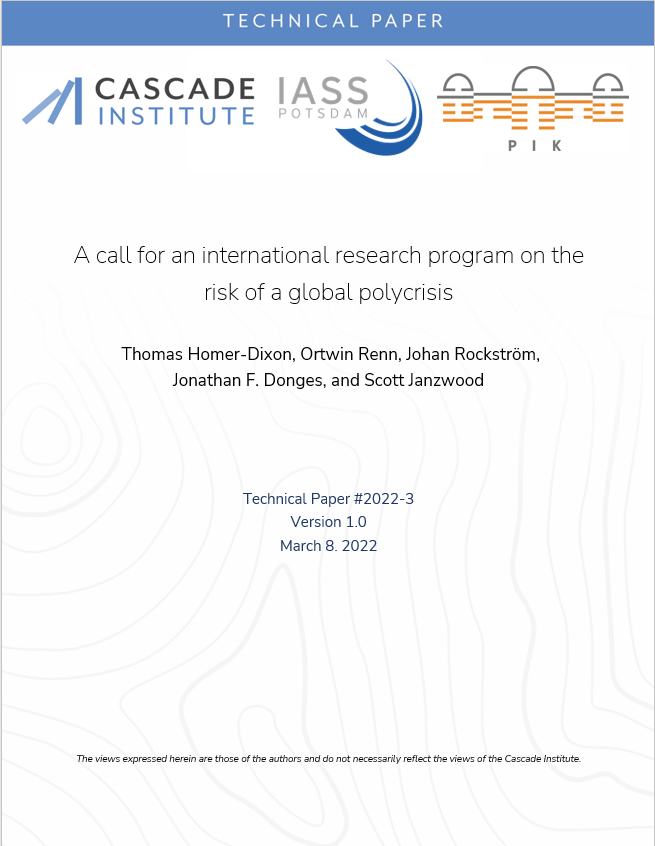Humanity faces an array of grave, long-term challenges, now often labeled “global systemic risks.” While scientific knowledge of the individual risks spawning these crises is deep, our understanding of causal links among risks remains shallow. This observation raises two key questions: What causal processes might be accelerating and amplifying risks within global natural and social systems and synchronizing risks (and their concomitant crises) across these systems? And what might humanity do to mitigate or even reverse these processes? We offer a novel analytical framework to aid identification of hitherto unrecognized, complex teleconnections and self-reinforcing feedbacks among global systems. We argue that the ultimate result of such unrecognized processes could be a global polycrisis—a single, macro-crisis of interconnected, runaway failures of Earth’s vital natural and social systems that irreversibly degrades humanity’s prospects. We therefore call for a global scientific collaboration to discern causal mechanisms that might generate a polycrisis and actionable policies to mitigate this risk.
Dr. Thomas Homer-Dixon is the Founder and Director of the Cascade Institute.
Prof. Dr. Dr. Ortwin Renn is the Scientific Director at the Institute for Advanced Sustainability Studies (IASS) in Potsdam, Germany.
Prof. Dr. Johan Rockström is the Director of the Potsdam Institute for Climate Impact Research (PIK) in Potsdam, Germany.
Dr. Jonathan F. Donges is the Co-Leader of the FutureLab on Earth Resilience in the Anthropocene and Working Group Leader on Whole Earth System Analysis at the Potsdam Institute for Climate Impact Research (PIK) in Potsdam, Germany.
Dr. Scott Janzwood is the Research Director at the Cascade Institute.
The paper is also downloadable on SSRN.

